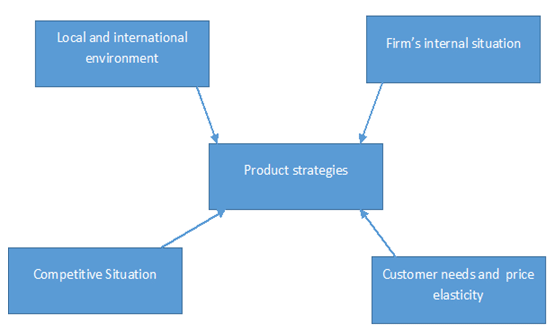Global Marketing Strategies | Management Optional Notes for UPSC PDF Download
Introduction
Numerous management studies underscore the importance of companies not limiting themselves to the domestic market in the era of globalization. To gain a competitive edge and boost profits, businesses need to formulate comprehensive global marketing strategies. Such strategies empower marketing managers to explore emerging target markets and product opportunities abroad. Global marketing is executed when marketing executives employ a cohesive plan to effectively promote their goods and services on a global scale.
Various management scholars assert that a global marketing strategy is a crucial component of an overall global strategy. To achieve success, it must encompass all functional aspects of a business, spanning from finance to operations to R&D, and have a clearly defined objective. There are different categorizations of global marketing strategies, as outlined by Jean-Pierre Jeannet in 2005.
1. Integrated Global Marketing Strategy:
- When a company follows a global marketing strategy, most of its strategies are applied worldwide.
- Globalization includes not only the product but also how it's communicated, priced, and distributed.
2. Global Segment Strategy:
- This is when a company decides to target the same customer group in different countries.
- It helps companies focus their efforts on specific global market segments.
3. Global Marketing Mix Element Strategy:
- These strategies involve globalizing certain aspects of the marketing mix, like pricing, distribution, product, or communication.
- They allow companies to customize other parts of their marketing strategy.
- Important types include global product strategies, global advertising strategies, and global branding strategies.
4. Global Product Strategy:
- This means a company considers targeting different groups and adjusts products, ads, and branding according to local market needs.
- It suggests the company has mainly globalized its product offering.
- While the product doesn't have to be the same everywhere, major aspects are similar.
- Global product strategies require similar product use conditions, features, and functions to minimize changes.
- These strategies can increase production capacity, making the initial investment more worthwhile.

5. Global Branding Strategy:
- This strategy involves using the same brand name or logo worldwide.
- It's recommended when customers travel across borders and encounter products from the same brand.
6. Global Advertising Strategy:
- This strategy also uses the same brand worldwide.
- It's helpful when a company wants to promote its products to consumers all around the world.
7. Hybrid Global Marketing Strategy:
- Sometimes, companies use multiple strategies at the same time.
- For example, a company might have a global brand strategy for one part of its business and use local brands for another.
- In a hybrid strategy, one main approach takes the lead, while others are less important.
Major Global Marketing Strategy Dimensions
Standardization:
- Achieving economies of scale and lower costs.
- Maintaining a consistent brand image across different markets.
Concentration and Coordination of Value-Chain Activities:
- Capitalizing on the comparative advantages of different countries.
- Benefiting from economies of scale and synergies across countries.
Integration:
- Cross-subsidization: Using resources from one country to compete in another.
- Cross-pollination: Implementing successful ideas from one country to another.
 Conceptualization of global marketing strategies
Conceptualization of global marketing strategies
Developing global marketing strategies starts with cultivating a global mindset, a unique way of thinking about the world market. This mindset involves understanding various aspects like key market details, economic factors, politics, cultures, history, and geography on a global scale.
Advantages of Effective Global Marketing Strategies
Improved Product and Service Effectiveness:
- Making products and services better suited for diverse global markets.
Stronger Competitive Advantage:
- Gaining a stronger position compared to competitors worldwide.
Heightened Customer Awareness:
- Utilizing the internet to keep customers informed about product developments globally.
Cost Reduction and Savings:
- Achieving cost savings by standardizing certain aspects in new markets.
Global marketing has several benefits
Experience, Scale, and Resource Utilization:
- Gaining valuable experience, utilizing economies of scale, and optimizing resources.
Sales and Profit Growth:
- Expanding sales and increasing profits by tapping into global markets.
In summary, effective global marketing strategies are essential for gaining a competitive edge. It involves adopting a new mindset and considering various factors on a global scale. The literature emphasizes the need for a fresh approach in thinking about global marketing operations (Jean-Pierre Jeannet, 2005), and there are different types of strategies that marketers develop to succeed in the world market.
FAQs on Global Marketing Strategies - Management Optional Notes for UPSC
| 1. What are the major dimensions of global marketing strategies? |  |
| 2. What are the advantages of effective global marketing strategies? |  |
| 3. How can market segmentation benefit global marketing strategies? |  |
| 4. What is the significance of product adaptation and standardization in global marketing strategies? |  |
| 5. How do distribution channels impact global marketing strategies? |  |

















